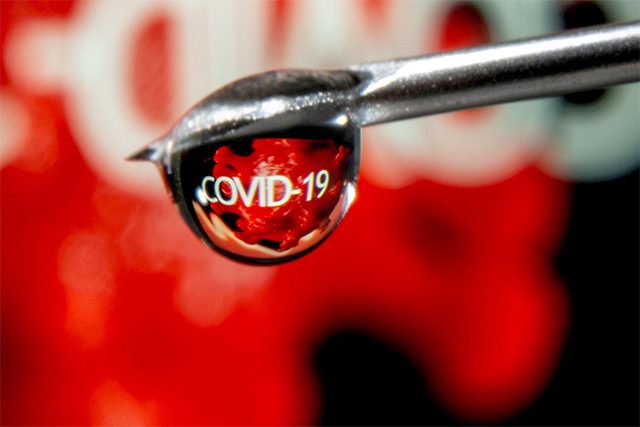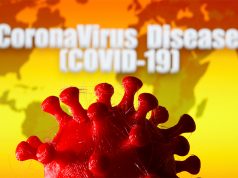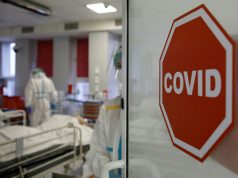
The following is a summary of some recent studies on COVID-19. They include research that warrants further study to corroborate the findings and that have yet to be certified by peer review.
Breakthrough infections can lead to long COVID
The persistent syndrome of COVID-19 after-effects known as long COVID can develop after “breakthrough” infections in vaccinated people, a new study shows.
Researchers at Oxford University in the UK reviewed data on nearly 20,000 U.S. COVID-19 patients, half of whom had been vaccinated.
Compared to unvaccinated patients, people who were fully vaccinated – and in particular those under age 60 – did have lower risks for death and serious complications such as lung failure, need for mechanical ventilation, ICU admission, life-threatening blood clots, seizures, and psychosis. “On the other hand,” the research team reported on medRxiv on Tuesday ahead of peer review, “previous vaccination does not appear to protect against several previously documented outcomes of COVID-19 such as long COVID features, arrhythmia, joint pain, Type 2 diabetes, liver disease, sleep disorders, and mood and anxiety disorders.”
The absence of protection from long COVID “is concerning given the high incidence and burden” of these lasting problems, they added.
Genes may explain critical COVID-19 in young, healthy adults
A gene that helps the coronavirus reproduce itself might contribute to life-threatening COVID-19 in young, otherwise healthy people, new findings suggest.
French researchers studied 72 hospitalized COVID-19 patients under age 50, including 47 who were critically ill and 25 with non-critical illness, plus 22 healthy volunteers.
None of the patients had any of the chronic conditions known to increase the risk for poor outcomes, such as heart disease or diabetes.
Genetic analysis identified five genes that were significantly “upregulated,” or more active, in the patients with critical illness, of which the most frequent was a gene called ADAM9. As reported on Tuesday in Science Translational Medicine, the researchers saw the same genetic pattern in a separate group of 154 COVID-19 patients, including 81 who were critically ill.
Later, in lab experiments using human lung cells infected with the coronavirus, they found that blocking the activity of the ADAM9 gene made it harder for the virus to make copies of itself.
More research is needed, they say, to confirm their findings and to determine whether it would be worthwhile to develop treatments to block ADAM9.
Pregnant women get sub-par benefit from first vaccine dose
Women who get the first dose of an mRNA COVID-19 vaccine while pregnant or breastfeeding need the second dose to bring their protective benefit up to normal, according to a new study.
Researchers compared immune responses to the mRNA vaccines from Moderna Inc or Pfizer Inc and partner BioNTech SE in 84 pregnant women, 31 breastfeeding women, and 16 similarly-aged nonpregnant, non-lactating women.
After the first shot, everyone developed antibodies against the coronavirus. But antibody levels were lower in women who were pregnant or breastfeeding.
Other features of the immune response also lagged in the pregnant and lactating women after the first dose but “caught up” to normal after the second shot.
In a report published last week in Science Translational Medicine, the researchers explained that in order for a mother’s body to nurture the fetus, “substantial immunological changes occur throughout pregnancy.”
The new findings suggest that pregnancy alters the immune system’s response to the vaccine.
Given that pregnant women are highly vulnerable to complications from COVID-19, “there is a critical need” for them to get the second dose on schedule, the researchers said.
Coronavirus found to infect fat cells
Obesity is a known risk factor for more severe COVID-19. One likely reason may be that the virus can infect fat cells, researchers have discovered.
In lab experiments and in autopsies of patients who died of COVID-19, they found the virus infects two types of cells found in fat tissue: mature fat cells, called adipocytes, and immune cells called macrophages.
“Infection of fat cells led to a marked inflammatory response, consistent with the type of immune response that is seen in severe cases of COVID-19,” said Dr. Catherine Blish of Stanford University School of Medicine, whose team reported the findings on bioRxiv on Monday ahead of peer review.
“These data suggest that infection of fat tissue and its associated inflammatory response may be one of the reasons why obese individuals do so poorly when infected with SARS-CoV-2,” she said. —Reporting by Nancy Lapid; Editing by Bill Berkrot









